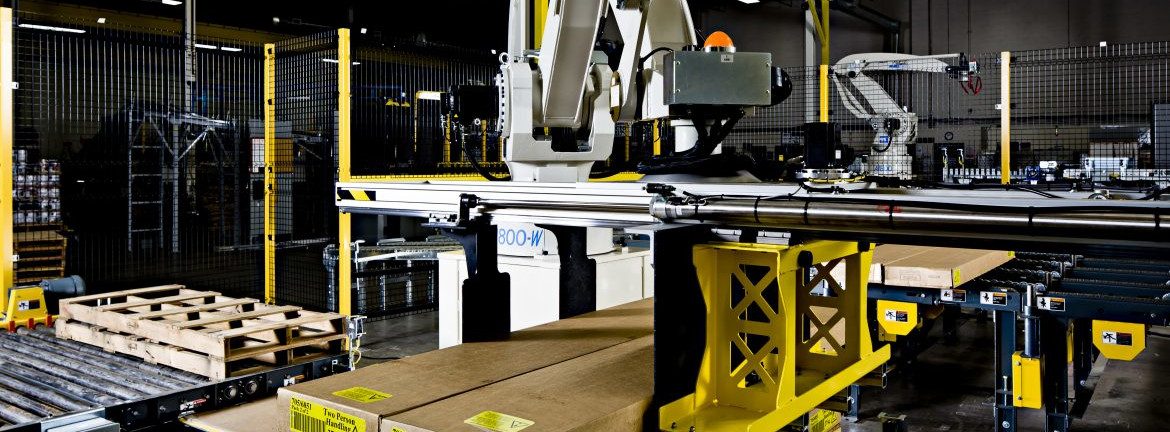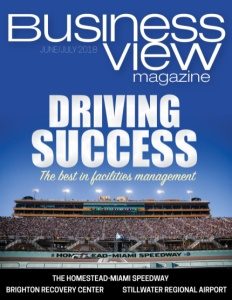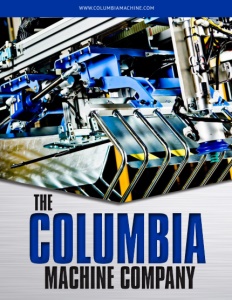The Columbia Machine Company
Versatility and innovation
Business View Magazine interviews Bryan Goodman, COO of the Columbia Machine Company, as part of our focus on best business practices.
Columbia Machine, Inc. was founded by Fred Neff, Sr. in 1937, as a small shop on the banks of the Columbia River in Vancouver, Washington, and named, at the time, Columbia Forge and Machine Works. Its main job in those early days was repairing the primitive block machines used by companies to produce concrete products. While learning the intricacies of the manually operated machinery, Neff decided that Columbia could design and build a better machine and, in 1945, he pioneered and built a hydraulically operated machine that would semi-automatically produce two 8x4x12-inch blocks at a time – an industry first.
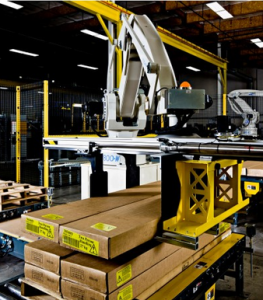 According to Bryan Goodman, the company’s Chief Operating Officer, Neff marketed Columbia’s new technology by building a one-quarter scale version of his machine, loading it in the back of a Buick station wagon, and taking it to nearby rock quarries and cement manufacturing operations. “He’d pull the machine out of the station wagon and make product right on site,” says Goodman. Shortly thereafter, Columbia built the first hydraulic machine to make two standard 8x8x16-inch blocks. Because of the precision and quality of blocks these machines could easily produce, the building public accepted the new Columbia machines enthusiastically.
According to Bryan Goodman, the company’s Chief Operating Officer, Neff marketed Columbia’s new technology by building a one-quarter scale version of his machine, loading it in the back of a Buick station wagon, and taking it to nearby rock quarries and cement manufacturing operations. “He’d pull the machine out of the station wagon and make product right on site,” says Goodman. Shortly thereafter, Columbia built the first hydraulic machine to make two standard 8x8x16-inch blocks. Because of the precision and quality of blocks these machines could easily produce, the building public accepted the new Columbia machines enthusiastically.
Over the next several years, Columbia continued to perfect its block machine. In 1955, the company moved to its present location on Grand Boulevard in Vancouver, where it incorporated as Columbia Machine, Inc. By 1957, it had established a firm position as a leading manufacturer in the U.S., and began expanding its market across the globe. Today, the company is the industry leader in concrete block manufacturing equipment, with a complete line of products to outfit any and all concrete products plants.
“We have the equipment with the most uptime, with the fastest cycle times, and the least amount of cement and other materials used to manufacture pavers and retaining wall block and concrete block,” says Goodman. “With our Columbia Vibration Technology, we can make much more consistent products. That’s an area where we excel. We sell to over a hundred countries, worldwide. We cover all of the developed, first-world countries, and many of the emerging market countries.”
Columbia Machine also has a Batching and Mixing Division, and offers a full line of mixing options to serve specific plant needs. All its mixers, including planetary, rotating pan, twin-shaft, and ribbon blade mixers are built to the highest standards of durability, with low maintenance costs, ease of use, performance enhancing options, and concrete repeatability. Another company division manufactures molds for the making of blocks, pavers, and retaining wall units.
In the 1960s, Columbia expanded its operations to include the manufacture of palletizers – machines that provide an automatic means for stacking cases or other packaged type goods or products onto a pallet for efficient transportation and storage – when some representatives from a local brewery asked if the machinery that it used to stack concrete blocks onto a pallet could be configured to work with cases of beer. The company’s engineers went to work and, soon, supplying this type of equipment to all types of consumer products companies created diversification for Columbia and its customer base expanded. This division has grown through the years and, today, Columbia Machine dominates the palletizing market with a full product line from small, to medium, to very large, high-speed, high-level palletizing machines – both conventional and robotic – that can be used to palletize just about any product or package that can fit on a pallet.
“In the palletizing market, both the conventional and the robotic, we can engineer what others are not capable of providing,” claims Goodman, “including mixed product palletization. If you’ve got products that have different sized boxes, we’re able to palletize them automatically. It’s easy to put the same type of Legos on the pallet, but when you start putting different size Legos, that’s a pretty big challenge.”
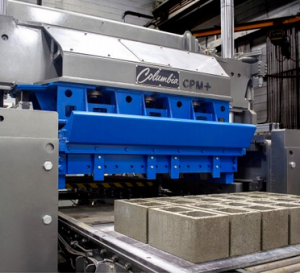 Beginning in 2008, the Great Recession curtailed much of the company’s concrete block manufacturing business, when a lot of construction was put on hold. In order to keep its staff employed, Columbia established another division: Columbia Manufacturing Services. “This division allows us to build and manufacture parts for other OEMs, up to and including complete assembly of the final product,” Goodman explains. “We have the ability to supply critical componentry – hydraulic power units, electrical control panels, or entire systems that a company would need to be built.”
Beginning in 2008, the Great Recession curtailed much of the company’s concrete block manufacturing business, when a lot of construction was put on hold. In order to keep its staff employed, Columbia established another division: Columbia Manufacturing Services. “This division allows us to build and manufacture parts for other OEMs, up to and including complete assembly of the final product,” Goodman explains. “We have the ability to supply critical componentry – hydraulic power units, electrical control panels, or entire systems that a company would need to be built.”
Most recently, the company has forged into the automatic bagging of industrial goods. “We’re combining some of our robotic technology, with some of our conveying technology, with some of our weighing and palletizing technology, to develop fully integrated bagging lines that will bag goods automatically,” Goodman notes. The company’s line of bag fillers, conveyors, and bag palletizers can handle a wide variety of materials, including concrete, stucco, mortar mix, granular minerals, sand, cement, fertilizer, and more.
Columbia Machine’s vision is to be the preferred supplier of engineered product solutions in the targeted markets it serves: Concrete Products Equipment, Batching and Mixing, Production Equipment Molds, Conventional Palletizing Machines and Robotic Palletizing Systems, and Contract Manufacturing Services. “Our tagline is ‘everything we do is through the eyes of our customers,’” says Goodman, and that the company’s mission is to provide them with superior solutions through innovation, quality, reliability, and continuous improvement.
“That’s a pretty bold statement,” he admits, “but the key driver in our growth through the years has been to understand what our customers need to be successful, and figure out how to assist them with different business solutions. This could be as simple as offering them Vendor Managed Inventory, or as in-depth as working with them to develop an engineered-to-order process solution. In the case of the latter, understanding the technology needs of our customers drives the focus in our product research and development efforts. Once the new products are developed and in operation, we will then work with our customers to identify opportunities to continuously improve the overall process. This customer experience focus keeps all of our team members focused on the most important element of our business – our customers, who thrive with our equipment, in over 100 countries worldwide. We believe that if we take care of our customers, we will be able to take care of the other three most important contributors to our success, our team members, our shareholders, and our local communities where we operate. But it all starts with taking care of and supporting the needs of our customers better than anyone else. ”
Check out this handpicked feature on StoreBound – Ideas to products.
AT A GLANCE
WHO: The Columbia Machine Company
WHAT: A leader in design, manufacturing, and support of concrete product machines and solutions
WHERE: Vancouver, Washington
WEBSITE: www.columbiamachine.com
